 myCSUSM
myCSUSMProgram & Presenters
Summer Conference 2024 Program
CENTER FOR CONTEMPLATIVE PRACTICES
| Time | Event |
|---|---|
| 9:00 am - 10:00 am | Registration |
| 10:00 am - 10:30 am | Welcome & Introductions |
| 10:30 am - 12:00 pm |
SESSION 1: STUDENT SUCCESS
|
| 12:00 pm - 1:00 pm | LUNCH |
|
1:00 pm - 2:30 pm
|
SESSION 2: ETHICAL CAREGIVING
|
| 2:30 pm - 2:45 pm | BREAK |
|
2:45 pm - 4:15 pm
|
SESSION 3: PROFESSIONAL TRAINING
|
| 4:15 pm - 5:30 pm |
WORKSHOP 1: SUPPORTING EDUCATORS
OR REFLECTION TIME WITH OPTIONS FOR WALKING MEDITATION, CONNECTNG WITH OTHERS, OR GONG IMMERSION (4:30-5:00) |
| 5:30 pm - 7:00 pm |
DINNER AND KEYNOTE SPEECH
|
| Time | Event |
|---|---|
| 8:00 am - 8:45 am | BREAKFAST |
| 8:45 am - 10:15 am |
SESSION 4: PROCRASTINATION
|
| 10:15 am - 10:30 am | BREAK |
| 10:30 am - 12:00 pm |
SESSION 5 : CONTEMPLATIVE PRACTICES IN THE FIELD
|
| 12:00 pm - 1:00 pm | LUNCH |
| 1:00 pm - 2:30 pm |
SESSION 6: CONTEMPLATIVE PRACTICES IN THE CLASSROOM
|
| 2:30 pm - 2:45 pm | BREAK |
| 2:45 pm - 4:15 pm |
SESSION 7: SUPPORTING STUDENTS
|
| 4:15 pm - 4:30 pm | BREAK |
| 4:30 pm - 6:00 pm |
WORKSHOP 2: SUPPORTING EDUCATORS
OR REFLECTION TIME WITH OPTIONS FOR WALKING MEDITATION, CONNECTNG WITH OTHERS, OR GONG IMMERSION (4:30-5:00) |
| 6:00 pm - 8:00 pm | DINNER AND SHOWCASE |
| Time | Event |
|---|---|
| 8:00 am - 8:45 am | BREAKFAST |
| 8:45 am - 10:15 am |
WORKSHOP 3 / WORKSHOP 4: CONTEMPLATIVE PEDAGOGY
|
| 10:15 am - 10:30 am | BREAK |
| 10:30 am - 12:00 pm | CLOSING SESSION |
Bianca Delia
The Power of Thought
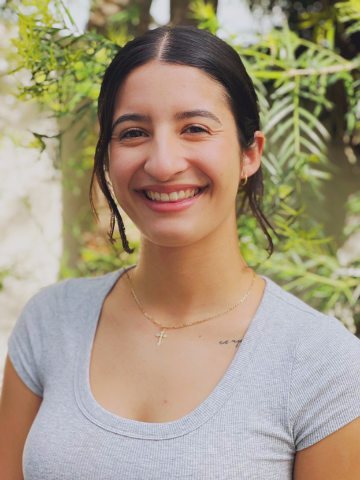
Bianca Delia is currently a full-time student at California State University San Marcos pursuing a B.A. in Psychological Science with a minor in Cognitive Science. She received her Associate of Arts in Social & Behavioral Sciences at the College of the Canyons in Los Angeles before choosing to continue her education at CSUSM. She is looking to pursue a PhD after her undergraduate studies. Since the Fall of 2023, Bianca has been a research assistant in the Misinformation and Memory Laboratory on campus led by Dr. Dustin P. Calvillo. This semester the lab explored the relationship between personality factors and susceptibility to misinformation. She is looking to pursue a career within the cognitive branch of psychology with interests in the cognitive processes behind vision, audition, and memory. Bianca is particularly interested in how the brain functions to perceive and interpret information from our environment, and how we can use our knowledge of these processes to establish positive self-beliefs in ourselves and others.
- Abstract - Delia
What if we could teach students how to fail properly? Yes, fail properly. Anyone who has ever achieved any feat, large or small, had to fail. More times than not, they had to fail over, and over, and over again. What sets these individuals apart from us is not money, status, genetics, or luck. The only key difference is that they possess a self-concept that allows them to persevere through the obstacles we tend to categorize as “failures”.
Through the use of positive affirmation and visualization practices we have a unique opportunity to change the way in which we inspire students to persevere through the myriad of obstacles along their academic path. The consistent practice of positive affirmations can establish and strengthen the neural pathways in our brain that affirm the very things we believe about ourselves. This in turn influences the way we behave and interact with the world. Why not teach our students to affirm to themselves that they are powerful, creative, capable, and strong? In addition, the practice of visualizing primes our mind for the pursuit of our goals. Visualization is a practice that utilizes our imagination as a vehicle to familiarize us with the appropriate actions we must take toward our goals. This practice can equip students with the ability to break down their goals into smaller, more attainable steps to take in the correct direction. This helps develop a strong bond between our present-self, and the version of ourselves we will become once we attain our goals. After all, true success is measured by the person we become in the process of reaching our destination.
These practices are especially useful in building confidence within, which in turn can help push ourselves to pursue the uncomfortable opportunities that are required for our individual growth. Because these practices are great tools we can use to shift our self-concept, implementing them in the bright minds of students can help push them to pursue their goals with conviction. Even better, we can inspire students to fearlessly contribute their ideas to the world. By teaching students to fine tune their thoughts and beliefs about themselves we can help them create a beautiful inner world that fosters growth and compassion. Furthermore, a self-concept rich in confidence naturally allows us to pour light into the lives of those around us, inspiring them to be great as well.
Terence Elliott
Spirit, Rhythm, and Story: Building and Healing through Song
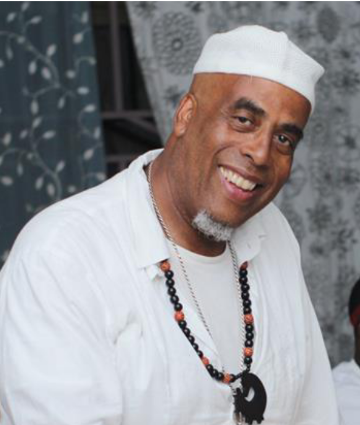
Dr. Elliott, Emeritus Music and Black Studies faculty, is dedicated to uplifting and liberating people by instilling the importance of education through community involvement and service. He holds a Doctorate in Educational Leadership from Argosy University, an M.A. in Creative Arts Interdisciplinary Studies, and a B.A. in Music and Black Studies from San Francisco State University. Elliott is a tenured board member of the California statewide community college organization, African American Male Education Network and Development (A2MEND); and the founder and former director of the African American Male Leadership Program (AAMLP) at Diablo Valley College. He also served as Division Dean of the Natural, Social, and Applied Sciences, and was the chair of the Africana Studies department at Contra Costa College; and former Senior Dean of Instruction at Los Medanos College.
Dr. Elliott retired in 2022 as a Professor of Music at Diablo Valley College, where he taught the History of Hip Hop Music and Culture and the Introduction to Social Justice. His recent books—Spirit, Rhythm, and Story: Community Building and Healing through Song, involve the power of music and music therapy toward healing communities and Hip Hop Music: History and Culture, the first e-book for Hip Hop Music instruction in the California community colleges. Dr. Elliott recently completed his Sound Therapy Certificate and now focuses his time and efforts working in the community to help with stress management, anxiety, depression, and male anger issues for African Americans through drum circles and sound therapy treatments.
- Abstract - Elliott
Racial trauma, an ongoing consequence of historical trauma, has harmful effects on the well-being of Africana communities, which calls for a social reform movement. There is no better suited medium for such a movement than Black Music (Jazz, Soul, and Hip-Hop) as its are roots born out of adversity and trauma. These Black song forms are a potential shift in the ideological and ideational dynamics of the African American community as far as it signaled an intergenerational movement around crafting solutions which were artistic, organizational, and institutional.
Going beyond individualistic approaches Doc Elliott will use excerpts from his text, “Spirit, Rhythm, and Story: Community Building and Healing through Song” to present a community healing framework informed by multidisciplinary scholarship. Three major components of the framework are delineated: (a) survive, (b) thrive and (c) build resiliency to address the ongoing challenges college students face and promote justice-informed outcomes.
Participants will explore equity-minded, social-emotional healing practices and strategies that enrich the success of African/Black students through integrated learning sessions that include Spirit, Rhythm, and Story (e.g., Sound Meditation; Rhythm Circles; and Journaling).
Paul Stuhr
Mindful Movements
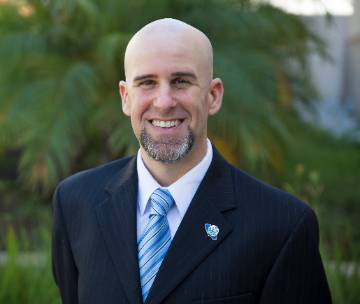
Dr. Paul T. Stuhr is a professor (full) in Kinesiology at CSUSM. He has over 20 years working in the field of sport pedagogy. He teaches courses related to social-emotional health and physical education teacher education. His research focuses on student outcomes associated adventure-based learning and mindfulness, specifically exploring how cooperative learning, group processing, and contemplative practices impact the lived-experience.
Dr. Stuhr has conducted over 100 national, state, and local presentations. He has collaborated with several local, non-profit community groups in delivering ABL to promote relationship skills – during this time, documenting how this curriculum promotes supportive learning communities and social-emotional health.
Dr. Stuhr currently has focused his research on reflective practices within an adventure-based learning (ABL) curriculum. ABL consists of highly structured physical activities with periods of reflection (i.e., group processing) that help promote personal and social development of the participants who take part in the experiential experiences. ABL has been primarily used to help K-12 students develop intrapersonal and interpersonal relationships. The versatility of this curriculum is its focus on enhancing participant human relationship skills.
- Abstract - StuhrMindfulness is a personal guide for our awareness and creates space for one to non-judgmentally view thoughts and feelings as they occur. By learning how to be more aware of the present moment we can actually rewire our brains and in the process reduce stress and anxiety, heighten body awareness, and increase our sense of compassion for self and others. Evidence indicates you can actually change the physiology of the mind! Physical activity coupled with mindfulness practice (i.e., mindful movements) can create a very powerful amalgam toward overall well-being. Mindful movements can stimulate beneficial neurochemicals (e.g., serotonin and dopamine) that have been shown to increase attention, reduce stress, and lift mood. This interactive practice session will look at ways to incorporate movement with mindfulness. Participants will have an opportunity to learn and participate in several mindful movements that can be used for personal practice or for teaching inside the classroom. These practices include, slow walking, sense the space around you (a focused attention / open awareness practice), shifting weight, inner smile walk, affirmation walk, and get-to-the-point.
Richard Armenta
Impact of Mindfulness-Based Practices on Student Success in STEM Research Training Programs
Denise Garcia
Impact of Mindfulness-Based Practices on Student Success in STEM Research Training Programs
Ranjeeta Basu
Impact of Mindfulness-Based Practices on Student Success in STEM Research Training Programs
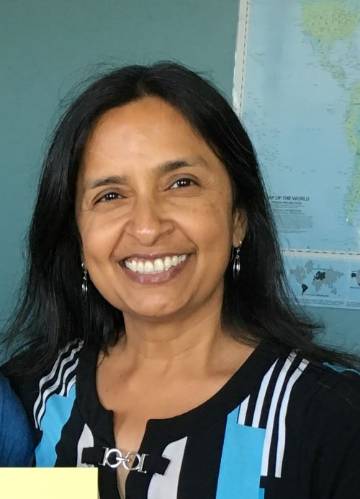
- Abstract - Basu
In this session we will present the findings of our NIH funded study on how mindfulness tools can help reduce stress and anxiety and improve the overall wellbeing of students to increase their success in STEM programs. In our study we provided students with mindfulness tools that (i) reduce emotional reactivity and cultivate deep learning; (ii) increase feelings of connectedness, compassion and belonging; and (iii) help students thrive and develop resilience in an uncertain and rapidly changing world. Students engaged in mindfulness practices to learn to deal with everyday challenges with equanimity; develop capacity for dealing with difficult emotions with kindness; and to learn that making mistakes is not a sign of failure but rather an opportunity to learn from their mistakes and be stronger and more resilient in the process. Students were better prepared to be thoughtful scientists who have the knowledge, skills, research experience and resilience for successful completion of researcher and degree programs in STEM.
In this session participants will also learn how mindfulness has been integrated into current NIH supported training programs (URISE and BRIDGES to Doc, and BRIDGES to BACC) to support students from minoritized backgrounds during their STEM training and Research. We will demonstrate one or two practices for the participants. This initiative is designed to directly address wellness and resilience among students to build their capacity to co-create safe and inclusive research environments and experiences. This work serves as a model for other student programs.
Gaston Bacquet
Developing empathy as a process of re-humanization: insights from South American HE students and their experiences with contemplative practices.
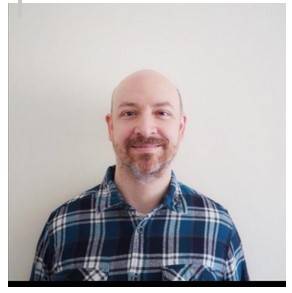
Gaston Bacquet is a qualified teacher with over 20 years’ experience. He has taught in Chile, Saudi Arabia, Myanmar, Japan and the UK, with experiences ranging from elementary and high-school teaching to working in government projects and lecturing at under and post-graduate level. He currently works as an Associate Tutor at the University of Glasgow, teaching and supervising graduate students in the MSc / MEd Educational Studies and Inclusive Education programs. He is also a guest lecturer for classes on Education and Violence, Case Studies in Religion and Global Challenges, and Religion and Violence.
His research has inclusiveness at its core; not as a method, but as a holistic dimension that considers our entire human experience from a social, cultural, sexual and spiritual perspective. His research seeks to identify elements of cultural and structural violence present in higher education classrooms, and to dismantle this through a pedagogy of nonviolence that draws on Buddhism, indigenous wisdom traditions and different intercultural perspectives.
In broader terms, he is a participatory action researcher interested in the intersection between nonviolent philosophical traditions, spirituality and decolonial pedagogical approaches, and how this intersection can help develop more inclusive, compassionate and ethical learning communities.
- Abstract - Bacquet
Violence in any of its manifestations is the practice of dehumanizing another. By perpetrating violent acts on others, we diminish their value and take away their dignity. The underlying philosophy of nonviolence, on the other hand, informed by traditions that have historically influenced each other from Hinduism to secular movements, is fueled by the understanding and recognition of our shared humanity, and thus, it encourages practitioners to recognize that humanity, in those who are different, have been marginalized or thought of as less valuable, and also in the oppressor.
Developing empathy is a key component in the path towards that recognition, and this is why it was a key component of a nonviolence training program undertaken with two groups of trainee teachers in Chile. Participants were led in a series of exercises informed by the principles of contemplative pedagogy, and which were aimed at fostering empathy and compassion. These included guided meditation, Lectio Divina and Tonglen meditation, amongst others. Results show these practices were successful in several dimensions: their understanding of violence and nonviolence, their willingness to engage with people and their social worlds through a nonviolent lens, as well as being able to recognize the humanity of the other through our differences, in recognizing the many shared elements of our human experience and in helping participants develop feelings of warmth and closeness towards others. The challenges of silent meditation were acknowledged, while practices that encouraged or were followed by instances of sharing were favored
Jennifer Daubenmeir
Can Mindfulness and Compassion Training Inspire Social Justice?
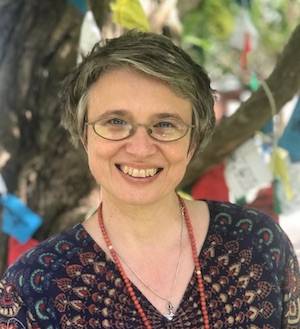
- Abstract - Daubenmeir
Today’s society is increasingly diverse and politically polarized. Alongside this shift in demographics is a rise in social justice movements, attacks on democracy, geopolitical conflict, and environmental instability. In a diverse, politically polarized atmosphere, it is challenging for people of differing viewpoints to be heard, especially those from marginalized groups. Future leaders and citizens need cognitive, emotional, and social skills for navigating a multi-cultural yet inequitable society to maintain social cohesion and work for social change. The university is a prime place to learn these skills.
Yet, college students suffer from high levels of stress, anxiety, and depressive symptoms which can interfere with the learning process. Also, empathy levels have decreased among college students over the past 20 years making it difficult to act for social change on behalf of others. Mindfulness is taught in universities with positive effects on well-being. However, these programs are critiqued for focusing on individual coping strategies at the expense of addressing social systems that exacerbate suffering. Loving-kindness and compassion practices increase empathy, compassion, and pro-social behaviors, yet it is not clear whether they increase commitment to social justice, and little is known about effects among college students.
This presentation will address the opportunities and challenges in incorporating contemplative practices in the classroom that may enhance psychological well-being and commitment to social justice. The presentation will provide overview of two courses offered in the Holistic Health Studies program at San Francisco State University, “Meditation for Health and Wellness” and “Mind-Body Healing in Tibetan Culture”. Preliminary data will be shared on associations between participation in these courses and changes in well-being, compassion, and commitment to social justice.
Rachael Horn Langford
Turning Inward: Students’ Experiences with Mindful Anti-oppression Pedagogy in Higher Education
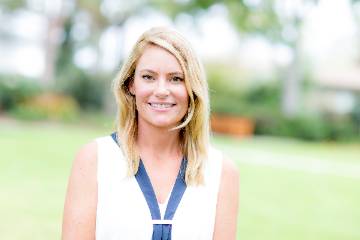
- Abstract - Horn LangfordIn recent years, more studies suggest that there is a link between transformative and contemplative education in post-secondary spaces. This paper presentation describes a mixed methods inquiry into the ways in which undergraduate students describe the impact of mindfulness practices incorporated into sociology of the body curriculum. Specifically, I explore how overlaying mindfulness practices with complex discussions that question hegemony and problematize oppressive traditions influence students’ critical learning. Participants completed a survey at the end of the course and reconstructed a picture of themselves to explore the ways students respond to how mindfulness activities incorporated into the curriculum impacted them. The self-portraits were paired with student captions and analyzed to identify how the visual displays and written responses reflected the processing of complex power dynamics and disrupting the embodiment of oppressive ideologies (Berila, 2015). Triangulating survey and critical multimodal production results helps us better understand students’ experiences and conceptualizations of engaging with contemplative practices such as mindfulness in higher education. I find evidence that incorporating mindfulness activities inside and outside the class helps develop students’ critical reflexive dispositions, as Berila (2015) notes, at the intellectual, emotional, and bodily ways of knowing; allowing them to “learn to know themselves more fully” and “process their embodied experiences” (p. 37). Findings illuminate how contemplative approaches can provide rich grounds for critical engagement that empower students to construct “disruptive knowledge” about themselves, groups, and the way in which a society is organized around power (Kumashiro, 2000); thus providing opportunities “to meet collective local and global challenges grounded in compassion and social justice” (Center for Contemplative Practices, 2024 Conference Meeting Call). Implications for integrating mindfulness practices in higher education coursework and the potentials of employing a critical multimodal approach (Cappello et al., 2019) are discussed.
Neeraj Mishra
Mindfulness in Social Work Education: (Re)Building a Space for Ethical and Compassionate Research
Neeraj Mishra is currently enrolled as a PhD student in the School of Social Work at the Loyola University of Chicago. He graduated from Tata Institute of Social Sciences, Mumbai with a Masters in Social Work and specialization in Criminology and Correctional Administration. After the MSW, he receive a DAAD fellowship for pursuing higher studies at the University of Bonn, in Germany.
His PhD research at Loyola studies the application of mindfulness based cognitive behavioral therapy in clinical social work and how teaching and research in social work can benefit from integrating this perspective. It further studies the logistics of integrating mindfulness in the social work curriculum of the U.S. and its pedagogical structure. It has been observed that mindfulness can be employed to assist clients suffering from different types of depression and anxiety, irrespective of their current socio-geographical status. This observation was crucial in his choice of mindfulness as a therapeutic approach and a subject worthy of further research, which led him to apply for a PhD program in this area at Loyola University Chicago, which has a vibrant culture of research in the field of spirituality, pastoral studies, Buddhist philosophy and mindfulness.
- Abstract - Mishra
The main objective of this study is to examine the teaching and learning of mindfulness in the pedagogical structure of contemporary clinical social work education. Study of mindfulness cannot be overemphasized in the discipline of social work, given the core conceptualization of social work as a ‘helping profession’ that engages in research for social development, freedom and justice. In the US, some universities have recognized the value of ‘integrated student learning’ or ‘holistic education’ and initiatives are being taken to revise the syllabus, which may be a good beginning, but not the end.
This article argues that institutions of social work, given their unique professional obligations, must adopt this new pedagogy, which is ‘understood as educating the whole person by integrating the inner and outer life, by actualizing individual and global awakening..(it) has become a quiet but sturdy movement that encourages the recovery and development of the academy as a liberating and capacity-building environment’ (Nepo, M. 2010: vii).
Mindfulness research addresses the issues of racial discrimination, oppression, inequality, justiceand power at its very roots, at the capillary level where it is experienced by the individual in their lifeworld and lived environment. It also shows a way towards decolonization of mental healthpractices by inclusion of non-western techniques of treating clients in a clinical setup. It can be observed among the practitioners that mindfulness leads to compassion and ethical integrity, which are essential human qualities for a harmonious and peaceful world.
The article finally attempts to provide hands and feet to the new paradigm of mindfulness, its epistemological and pedagogical requirements, so that it could be integrated as an important part of social work education in the coming years. It has the potential to create ethical and responsible citizens as well as leadership, which would go a long way in ensuring peace and fraternity among the different countries of the world.
Gary Padgett
Middle Grades Mushroom Growing: A contemplative approach to STEAM lessons
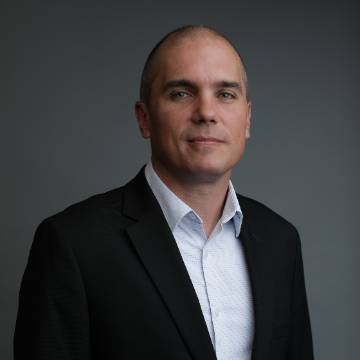
- Abstract - Padgett
Middle Grades Mushroom Growing: A contemplative approach to STEAM lessons
Since the 1950s, the United States’ education system has emphasized Math and Science lessons. Over the last 80 years, the context has changed but the emphasis has not. While the launch of Sputnik is no longer a national concern, students are now examining technological advancements, climate change, and regenerative agriculture. Rather than separating Math and Science from each other and other subject areas, multidisciplinary approaches such as Science, Technology, Engineering, Math (STEM) and Science, Technology, Engineering, Art, Math (STEAM) are being uses in schools nationwide. The STEM/STEAM approach allows for a collaborative approach that encourages student learning and retention. This study utilizes a STEM/STEAM approach to teach middle grades students how to grow commercially grow mushrooms on a small scale, but also uses a contemplative approach of mindful gardening to deepen the experience. Rather than only learning about how to grow mushrooms for consumption, the students also learned mindfulness strategies while weeding, observing, and exploring the connection between mushrooms and other organisms. The contemplative approach encouraged students to slow down and spend time with the academic lessons. This approach was incorporated into other areas such as the students’ homework and their interaction with classmates. The connection between individual mushrooms and other organisms encouraged students to examine their connections to each other, their community, and the larger world. This study demonstrates the impact a contemplative STEM/STEAM lesson can make.
Ann Seide
Impact of Mindfulness on Police Officer Wellbeing

- Abstract - Seide
“...actions based on logical application of abstract principles to a specific situation may be less ethical than a response that arises out of heartfelt caring in conjunction with self-examination of our own motivations.” from The Ethics Of Caring, by Kylea Taylor.
Dr. Seide developed the undergraduate Medical Ethics of Life and Death (MELD) course to explore medical ethics from a participatory approach using the dialogic practice of council as a skillful means to engage difficult topics in healthcare. The course aimed to introduce students to some of the important moral and ethical dilemmas in the practice of medicine. Philosophy is a discipline where discussion is crucial, but the tendency to mime previously stated axioms and present pro and con arguments were de-emphasized in the class. Rather, students were invited into an experience of “not knowing,” where they were encouraged to suspend judgment and listen from the heart rather than the head, as well as speak authentically and spontaneously. At the end of this course, students discovered the value of vulnerability, and demonstrated an improved ability to listen to others more openly when encountering ethical dilemmas for which there is rarely one right answer. Many reflected on the course—and the practice of council in particular—as life-changing, and have continued to seek ways to bring council more widely to the CLU community as well as into their personal lives.
Mary Hamer
Co-Presenter

- Abstract - HamerThis study seeks to test whether mindfulness practices, compassion-based communication exercises, and training in wellness-related areas such as stress management and self-care can improve wellness and resilience of police officers at CSUSM. The director of Integrated Risk Management at CSUSM invited Center for Council in Los Angeles to implement their nationally certified POWER training for law enforcement with police officers at CSUSM. Center for Contemplative Practices partnered with Center for Council to collect both survey and biometric data and assess the impact of this training on the wellness, autonomic health and resilience of police officers undergoing this training. Policing is considered to be one of the most stressful occupations in the world (Violanti et al, 2017). Police officers routinely face dangerous, unpredictable and potentially life threatening situations which leads to higher rates of depression (Wang et al, 2010), anxiety (Berg, 2006) and burnout (McCarty, 2013) compared to other professions. High rates of stress can not only lead to poor mental and physical health (Hartley et al, 2011) but can also lead to increased racial bias and use of excessive force (Ma et al, 2013). Recent studies have demonstrated that mindfulness based practices can reduce stress, increase emotional self regulation and resilience (Schuman-Olivier, 2020). More specifically, a recent study demonstrates that mindfulness training can improve wellbeing and reduce depression among police officers (Trombka et al, 2021). Through pre- and post-POWER training surveys, Center for Council realized the potential for the addition of heart rate variability as a metric which could lend further information on the potential health benefits of the training. Studies by McCarty and Atkinson in 2012, and Ramey et al in 2017, have established the inter-user reliability of HRV testing. In this session we will present the findings of our study which we hope will add to this growing literature and will support the six pillars of 21st century policing models on our campus and in the region.
Paula Serrano
Compassion and the Care Economy
Gustavo Rivera
Compassion and the Care Economy
- Abstract - Rivera
This project studies the effectiveness of using mindfulness practices to build capacity for compassionate action by offering small group sessions co-led with students that create communities for action that address the care crisis. Care work is required at those times in our lives when we have limited ability to take care of ourselves and have to depend on other human beings for care. None of us could have survived to adulthood if someone hadn’t taken care of us. And as adults there will be times in our lives when we will be sick, when we might be incapacitated, when we will most likely age to the point of needing intensive care. Care work is one of the most direct ways in which we contribute to the survival, sustenance and flourishing of life. It is the necessary infrastructure that undergirds the rest of the economy. And yet the distribution and access to high quality care services is highly unequal and leads to unequal outcomes in all other areas. Most care services are provided by women within a paid or unpaid context which exacerbates gender inequalities in all domains. With increasing numbers of people aging and depending on others for care and not enough trained care workers, we are facing a global care shortage. The pandemic has exacerbated the care crisis and has taught us that care work must be a shared responsibility of all human beings. Thus, the questions that lay before us are: How can we provide high quality care to all groups in an equitable way? How can those who provide care be well compensated and valued without the expectation that care work will be done mostly by women? Investing in the care economy will not only provide the infrastructure necessary for all human life to flourish but will also help decrease inequalities in health, education and income and make us more resilient and prepared for the climate crisis.
The success of this vision requires strong democratic processes that encourage broad based participation by all stakeholders especially marginalized communities. Strong partnerships between the state and community organizations are critical to ensure accountability and solutions that are informed by those who are the hardest hit by crises. Addressing the care crisis will require campaigns to educate and to open minds and open hearts about care work. We need to become aware of inequalities that exist in the care economy and be motivated by compassion to do something about it. I propose creating communities for compassionate action especially focused on civic engagement. Addressing the global care crisis is a shared global responsibility and we wish to demonstrate a model for how we can make that collaboration happen in an effective and compassionate way. We are also studying the role that mindfulness practices can play in building capacity for compassionate action.
Dee Denver
The Bodhi Tree Project: a Contemplative Approach to Early-Stage Undergraduate Student Support and Research at Biology-Buddhist Thought Intersections
- Abstract - DenverEarly-stage and transfer undergraduate students entering large-university environments often face numerous challenges that include demanding coursework, a lack of family and other familiar support systems, and complex financial strains. Students of marginalized identities are disproportionately impacted by these and related obstacles. With a commitment to addressing these challenges, our goal was to develop and implement an innovative experiential research program at Oregon State University, offering a comprehensive support structure that integrates experiential learning, community building, contemplative practices, and critical thinking. This initiative seeks to empower undergraduate students, aiding them in overcoming academic challenges and fostering profound personal growth within the university environment. The program has been offered three times: 2017, 2021, and 2023. Project participants (8-14 STEM-major students per cohort) were recruited through OSU programs supporting early-stage, transfer, and underrepresented students. Bodhi trees (Ficus religiosa), considered sacred to Buddhist and other spiritual traditions of Asia, served as the focal center of the project offerings. The trees were studied from multiple biological, geographical, historical, and contemplative lenses. Each cohort worked together to investigate a specific set of biological and philosophical questions relating to Bodhi trees. In 2021, for example, students analyzed the genetic relationships between sacred Bodhi trees at Buddhist temples in comparison to trees obtained from commercial sources. They also grew their own Bodhi trees from seed, and cared for them in their dorm rooms and other locations of social isolation during the COVID-19 pandemic. Introductory guided mindfulness meditation practices were interwoven into the 2021 experience, along with reflective philosophical questions tied to a book club focused on What the Buddha Taught by Walpola Rahula. Similar Bodhi Tree Project programs were offered in the other two years, with different specific underpinning biological and philosophical questions. Program evaluation, conducted using a varying combination of qualitative and quantitative assessment approaches across years, revealed preliminary evidence for positive program effects on student understanding of scientific processes, Buddhist thought, and meditation practices. Students reported positive program impacts on their senses of identity, connection to others, and confidence. The Bodhi Tree Project stands as an effective model for early-stage undergraduate student support that integrates scientific research and contemplative perspectives. By merging diverse disciplines, this initiative offers a transformative avenue for nurturing holistic development and academic growth among students navigating the challenges of university life. In addition to discussing student experiences and outcomes of previous Bodhi Tree Project offerings, this Research and Interactive Practice session will include a contemplative activity that integrates Bodhi trees and seeds into meditation practice.
Brenna Prevelige
Transdisciplinary research in Nepal: A contemplative approach to biocultural ecotones

- Abstract - Prevelige
Transdisciplinary research in Nepal: A contemplative approach to biocultural ecotones
Prevelige, Brenna Rose, Crowley, Jazlee Joon, Howe, Dana Kathryn, Denver, Dee
Transdisciplinary approaches expand beyond traditional silos of academic fields, integrating diverse perspectives for more holistic work. Our lab applies transdisciplinary approaches to scientific research that is rooted in Buddhist epistemology and ethics, with emphasis on selflessness, non-attachment, awareness, and compassion. Our work across Buddhist and biological disciplines offers a novel approach to the concept of an ecotone, the zone of transition between ecosystems based on biotic or abiotic factors. In August of 2023, we extended our transdisciplinary lens to the concept of biocultural ecotones in Nepal. Our approach simultaneously explored biological ecotones, such as border zones of national parks, cultural ecotones, like the intersection of Buddhist and Hindu religions, and the places in which biological and cultural ecotones meet. We focused on the ethnomycological use and community forest harvest of the Reishi mushroom, Ganoderma lucidum, and the biological and cultural importance of the Bodhi tree, Ficus religiosa, a species sacred to both Buddhist and Hindu traditions. In addition to scientific research activities, we engaged in regular circumambulation at the Boudhanath Stupa of Kathmandu, coursework in Buddhist philosophy at Rangjung Yeshe Institute, and a contemplative trekking experience in the Annapurna Conservation Area. Our transdisciplinary approach explored contemplative alternatives to the typical experience of biological sampling. We applied the Buddhist concept of non-attachment to physical biological sampling, and prioritized interpersonal relationship-building and deepening biocultural awareness. We demonstrated the need for contemplative practice in biological science, extending this beyond classroom settings to field research environments. This framework cultivated opportunities for future collaborative, compassion-driven science at intersections of biology and Buddhism and demonstrated the value of openness, flexibility, and cultural context in biological research activities.
Marnie Eldridge
Procrastination, Sense of Belonging, & Mindfulness in the First-Year Seminar
- Abstract - Eldridge
Proposal: Research and Interactive Practice session
This session will present and explore First-Year & University Programs’ effort to pilot, refine, and implement a program-wide curricular framework rooted in Contemplative Pedagogy to address Procrastination, Sense of Belonging & Mindfulness in the First-Year Seminar.
Developed and proposed to FY&UP by CSUSM’s Center for Contemplative Pedagogy prior to the fall of 2023, this fresh curricular framework employs research-supported contemplative approaches to decrease procrastination among students while increasing a sense of belonging and ongoing mindfulness among first-year students specifically. In partnership with the Center for Contemplative Pedagogy, First-Year & University Programs recruited 7 lecturers to pilot this curricular framework across 18 sections of GEL 101 (including sections that acted as control groups). First-Year & University Programs lecturers involved in the fall pilot then worked in a Community of Inquiry, Practice, and Application in the spring of 2024 to create a program-wide curricular-framework for expanded implementation in fall of 2024.
This session will weave together first-year faculty experiences, first-year student feedback, and our resulting outcomes with the very practices this unique curricular framework makes use of: settling in practices, longer guided mindfulness practices, intrapersonal letter writing, and pair/peer sharing for an interactive review of our Procrastination, Sense of Belonging & Mindfulness curricular framework in and for the First-Year Seminar.
Further, this session will highlight the bonus-effects of an intentionally curated contemplative curricular framework such as increased resilience, expanded capacity for compassion along with enhanced self-awareness and self-regulation among our first-year students. In this, we will also highlight the joys and challenges of building a contemplative academic community of educators/practitioners in FY&UP and explore the impacts on our own teaching, service, and personal practice.
Karen Schaffman
Mindfulness for Caregivers: A Somatic Approach
Andrew Spieldenner
Mindfulness for Caregivers: A Somatic Approach
- Abstract - SpieldennerCare work is required at those times in our lives when we have limited ability to take care of ourselves and have to depend on other human beings for care. Care work is one of the most direct ways in which we contribute to the survival, sustenance and flourishing of life even as life is ebbing and we are getting ready to transition. People who care for people play a vital role in our communities, whether in intimate family circles, larger social networks, or the wide array of helping professions in healthcare, and more. However, this support can come at a high personal cost (physical, emotional, mental, spiritual), leading to frustration, exhaustion, and a fast track to burnout. In this session we will share practices that we have provided to hospice care workers that explore the immense resilience of the human spirit, and how to find greater balance when serving others. We will explore questions such as: (i) How do we balance the desire to help others with our own needs? (ii) How do we have compassion for ourselves as well as others? (iii) How do we infuse our actions with the wisdom that we must do our best while acknowledging that we're not in control? (iv) How do we create strong bonds with the person needing care while letting go at the same time?
Jocelyn Ahlers
Staging contemplative practices across the semester
- Abstract - AhlersContemplative practice has a wide range of benefits in the context of higher education. Mindfulness, which can be defined as the practice of bringing a kind, focused attention to present-moment experience (e.g., Saltzman, 2014), helps to cultivate a range of beneficial mindstates for both students and faculty in the classroom. The use of contemplative practices in educational settings can help to reduce anxiety, stress, and lack of focus, while improving educational outcomes for students (e.g., Brown et al, 2007; Cho et al 2016; Helber et al, 2012, Shapiro et al, 2011; Zenner et al, 2014). The range of practices which can be introduced to students across the course of a semester varies considerably, depending on the goals and experience of the instructor. The purpose of this workshop is to create a space for educators to consider the possible roles and benefits of contemplative practices in their classrooms, and then to look at how those practices can be introduced to students across a semester-long class. Experience suggests that students benefit from a staged introduction to contemplative practice, which provides students with appropriate and effective building blocks, eases students into practice, and offers a structure which can create a “safe-enough” space for contemplative practice among a diverse audience. Functionally, this means building from mindfulness of breath and body, moving to practices which use that as a foundation to consider present-moment awareness of thoughts and emotions, and then, if desired, adding practices which focus on human interconnection and support prosocial outcomes. Throughout, the importance of the instructor’s own contemplative practice, the role of careful introduction of practice, the offering of “off-ramps” for students and trauma-informed guidance, and the benefits of debriefing space are discussed. This 90-minute workshop is an opportunity not only to learn about, but to practice a range of mindfulness exercises that can be used in the classroom, potentially including: orienting, awareness of breath, body scan, mindfulness of thoughts, exploring emotion in the body, mindful movement, Just Like Me, and holding others in loving awareness. The practice of these exercises offers an opportunity to also practice and model introductions and debriefs to each. Participants should please bring a notebook and writing utensil, and should have in mind one or more classes to which they wish to bring contemplative practice.
Vanessa Meade
Engaging University Communities in Social Justice through Contemplative Practices
Vanessa Meade, PsyD, LCSW, is an assistant professor at the University of Alaska Anchorage in the School of Social Work. She is also a U.S. Army/Gulf War Veteran and former Alaska State Trooper.
Dr. Meade is a licensed social worker and licensed psychologist in Alaska and has worked as a clinician/therapist in rural community mental health agencies and juvenile justice and has lived in rural and remote areas of Alaska. A focus of her work is women veteran's issues and mindfulness-based interventions.
She is a certified mindfulness teacher and facilitates mindfulness programs at UAA with students, faculty, and staff and military veterans online and in-person residential retreats throughout the United States. She founded a non-profit organization, Alaska Veterans Organization for Women (A.V.O.W.) and is the project coordinator for Operation Mary Louise, a state-wide women veterans outreach program. She serves on several national advisory committees and boards including the Secretary of the U.S. Department of Veterans Affairs (VA) Veterans’ Rural Health Advisory Committee and the NASW National Committee on Lesbian, Gay, Bisexual, Transgender and Queer+ Issues.
- Abstract - MeadeThis workshop session will focus on exploring the impact of contemplative practices on addressing and engaging university communities in social justice work. Through identifying and experiencing mindfulness-based pedagogy and practices, we will discuss and develop ways we can bridge these practices within university communities to engage in social justice during these uncertain times. Throughout the interactive workshop session, we will explore contemplative practices as a way to turn towards meeting the complex layers of the work to be done, engaging others, and our own positionality to be an ally for equity and engagement. We will also identify and discuss ways to support ourselves and our work in the communities of higher education we serve.
Meena Srinivasan
Embodied Teaching and Learning: Nurturing Our Inner Lives in Higher Education

- Abstract - Srinivasan
This session invites participants on a transformative journey within the realm of contemplative practices in higher education. In an era where education is continually evolving, this exploration delves into the profound intersectionality of teaching methodologies, social-emotional learning, and the intricate relationship between mind, body, and spirit. Aligned with the overarching theme of contemplative practices, the session endeavors to reshape the educational landscape by delving into the depths of educators' inner experiences and weaving contemplative pedagogy and spirituality seamlessly into the very fabric of higher education.
In the dynamic and ever-evolving landscape of higher education, educators are faced with the imperative to adapt their teaching methodologies to meet the evolving needs of students and the broader educational community. This session recognizes the transformative potential within contemplative practices, seeking to empower educators with the tools to evolve their teaching approaches. By embracing contemplative pedagogy, participants will explore innovative ways to foster social-emotional learning, recognizing the interconnectedness of intellectual, emotional, and spiritual growth within the educational journey.
The heart of this session lies in the integration of mind, body, and spirit. Participants will embark on an exploration of the transformative potential that emerges when these facets are harmoniously engaged in the educational process. The holistic approach recognizes that education is not solely an intellectual pursuit; it is a dynamic interplay between cognitive, emotional, and spiritual dimensions. This holistic perspective aims to nurture not only the academic development of students but also their emotional intelligence and spiritual well-being.
Aligned with the theme of contemplative practices, this session envisions a higher education landscape that transcends traditional boundaries. It calls for a paradigm shift that recognizes the intricate dance between inner experiences and educational practices. By deepening the inner experience of educators, the session seeks to empower them to become catalysts for change within their academic spheres.
Aligned with the theme of contemplative practices, this session envisions a higher education landscape that transcends traditional boundaries. It calls for a paradigm shift that recognizes the intricate dance between inner experiences and educational practices. By deepening the inner experience of educators, the session seeks to empower them to become catalysts for change within their academic spheres.
The infusion of contemplative pedagogy and spirituality into the core of higher education is not merely a theoretical exploration; it is a call to action. Participants will engage in practical exercises, interactive dialogue, and reflective practices to internalize and embody the transformative principles discussed. Drawing inspiration from contemplative practices, the session aims to foster a sense of presence, mindfulness, and awakened awareness among educators.
In essence, Embodied Teaching and Learning: Nurturing Our Inner Lives in Higher Education, invites participants to be active agents in the evolution of education. By delving into contemplative practices and recognizing the interconnectedness of mind, body, and spirit, educators have the potential to usher in a new era of transformative and holistic learning experiences within higher education.
Pam Redela
Mindfulness and Student Engagement
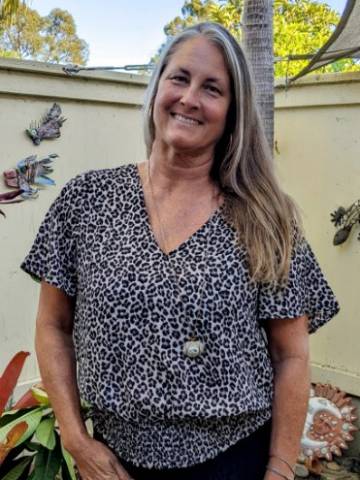
Pamela Redela holds a PhD in Spanish Language, Literature, and Culture with an emphasis in Feminist Studies and teaches in the Muir College Writing Program at UC San Diego. She is a retired faculty from California State University, San Marcos where she taught Women’s, Gender, and Sexuality Studies for 18 years. Her research focuses on the complexities of gender, feminist activism, Ecofeminism, and intersectional analysis and her teaching includes an emphasis on mindfulness as an avenue for building empathy and increased personal awareness. Her publications explore dimensions of identity in the pursuit of a purposeful life and focus on fiction writing as a form of advocacy. Her passion is educating and empowering her students to be agents of cultural change.
Anne Dabb
Mindfulness and Student Engagement
- Abstract - Dabb
Introducing students to mindfulness practices requires planning and courage. Planning comes in the form of scaffolding offerings to build competency. For instance, it may not be wise to plunge into a silent meditation on the first day of class; however, introducing students to simple practices like box breathing or sensory awareness and then building up to include practices like guided visualizations and deep listening exercises helps students gain competency in practicing mindfulness.
Courage is needed since faculty may be newer to mindfulness practice and/or have our own anxieties about bringing mindfulness into the classroom, especially in disciplines where the “fit” may not be clear.
Mindfulness practices, however, come in many forms and are adaptable to all disciplines and classroom settings. This roundtable/workshop will begin with moderators sharing experiences followed by a general Q&A from participants on what mindfulness can bring to the higher ed classroom.
The session will then introduce faculty to a variety of practices to implement in their classrooms with the goal of leaving participants with a firm plan for implementation along with sample activities.
Jill Weigt
Workshop on Reducing Procrastination with Mindfulness
- Abstract - Weigt
In a recent national survey, students identified procrastination as the most important barrier to their academic success, with finances a distant second place. Not all students experience these barriers in the same way nor do they have the same resources to deal with these barriers. Fear of failure, stereotype threat, and other factors cause students, especially first-generation students, to feel that they don’t belong in college, making it harder to retain them. Studies have shown that procrastination is a pervasive problem among students and among other adults (Steel, 2007; Harriott & Ferrari, 1996) which can lead to several negative outcomes such as stress, anxiety, low self-esteem, poor health and financial outcomes, and poor academic performance (Howell et al., 2006). The interest in mindfulness and other contemplative practices has spurred a great deal of research and discussion in recent years. Several studies (Gautam et al., 2019; Flett et al., 2016) have found that mindfulness practices reduce procrastination directly and indirectly by reducing anxiety. Mindfulness practices that increase our ability to act with awareness, nonjudgment, and nonreactivity can have a significant impact on reducing procrastination and anxiety. In this session, we will discuss some findings from our recent research on the impact of mindfulness on student success and procrastination. We will also cover a variety of evidence-based contemplative practices such as breath practices, mindfulness of emotions, self-compassion, and intention-setting practices designed to help reduce procrastination and anxiety. We will explore how participants can incorporate these practices in their own personal lives as well as with their colleagues and students.
Therese (Tess) Ahlers
Impact of Compassion Training for Physicians on patient outcomes
- Abstract - Tess Ahlers
Background
Physicians and patients alike suffer from the effects of healthcare provider burnout. This study aims to determine if a Six-Week Self-Compassion Training for Healthcare Communities can improve patient experience by mitigating burnout effects in their physicians.
Methods
UCSD Family Medicine physicians who completed the intervention course (n=9) were enrolled, as well as physicians who did not complete the course, but were willing to act as controls (n=14). Control physicians were stratified by interest in the course (interested – n=12/not interested – n=2). Participants’ patients who were seen immediately post-intervention, and 2 and 5 months post-intervention were contacted and asked to complete a Compassion Measure to evaluate their care experience. Time points were supplemented with data from the UCSD Patient Experience Survey, as well as pre-intervention. Data was compared between groups using t-tests at each time point, and within groups using linear regressions across time points.
Results
The intervention group was not significantly different from control groups in either Compassion Measure score, nor Patient Experience Survey data at any of the time points. None of the linear regression models showed significant correlation between time and score.
Conclusions
There was a small, non-significant benefit in compassion scores noted in the intervention group immediately post-intervention, which had waned at 2-3 months post-intervention, suggesting a need for mindfulness refreshers in future interventions. Patients indicated they felt they received compassionate care, regardless of treatment group. There was a strong interest in mindfulness in most physicians involved in the study, which may act as a protective factor.






